SINGAPORE – The incessant whine of drones and whizzing of rockets are a constant occurrence as Singaporean Mae Lam and her family tend to their olive farm in southern Lebanon.
The farm is 60km from the Israeli border. Once, a rocket fell nearby and their house vibrated, Ms Lam, 59, told The Straits Times, and stones from the mountain fell onto the main road.
“The drones are there 24/7 to put fear into people’s lives, even during the ceasefire,” she said in reference to the Israel-Lebanon truce inked on Nov 27, 2024.
Their 10ha olive farm with 700 olive trees is located in the village of Houmine al-Tahta in southern Lebanon.
The region is famous for its olive production.
The farm Beit Ballout (House Ballout) produces high-quality olive oil. It also grows plants like sage, lavender, bay leaf, orange and longan trees.
Despite the persistent threat and impending danger, Ms Lam’s family and their workers have soldiered on, especially during harvesting season, which starts in October.
“If we leave this world doing it, we are happy,” she added, having adapted to the Lebanese resilience and of living life to the fullest.
After all, it was a long-cherished dream for Ms Lam and her Lebanese husband Adib Ballout to build a home in south Lebanon and enjoy the fruits of the land.
That dream came true in 2018 when they decided to work on the Ballouts’ family land.
For him, it means connecting further with his roots. For her, it is fulfilling a dream of living and working on a farm.
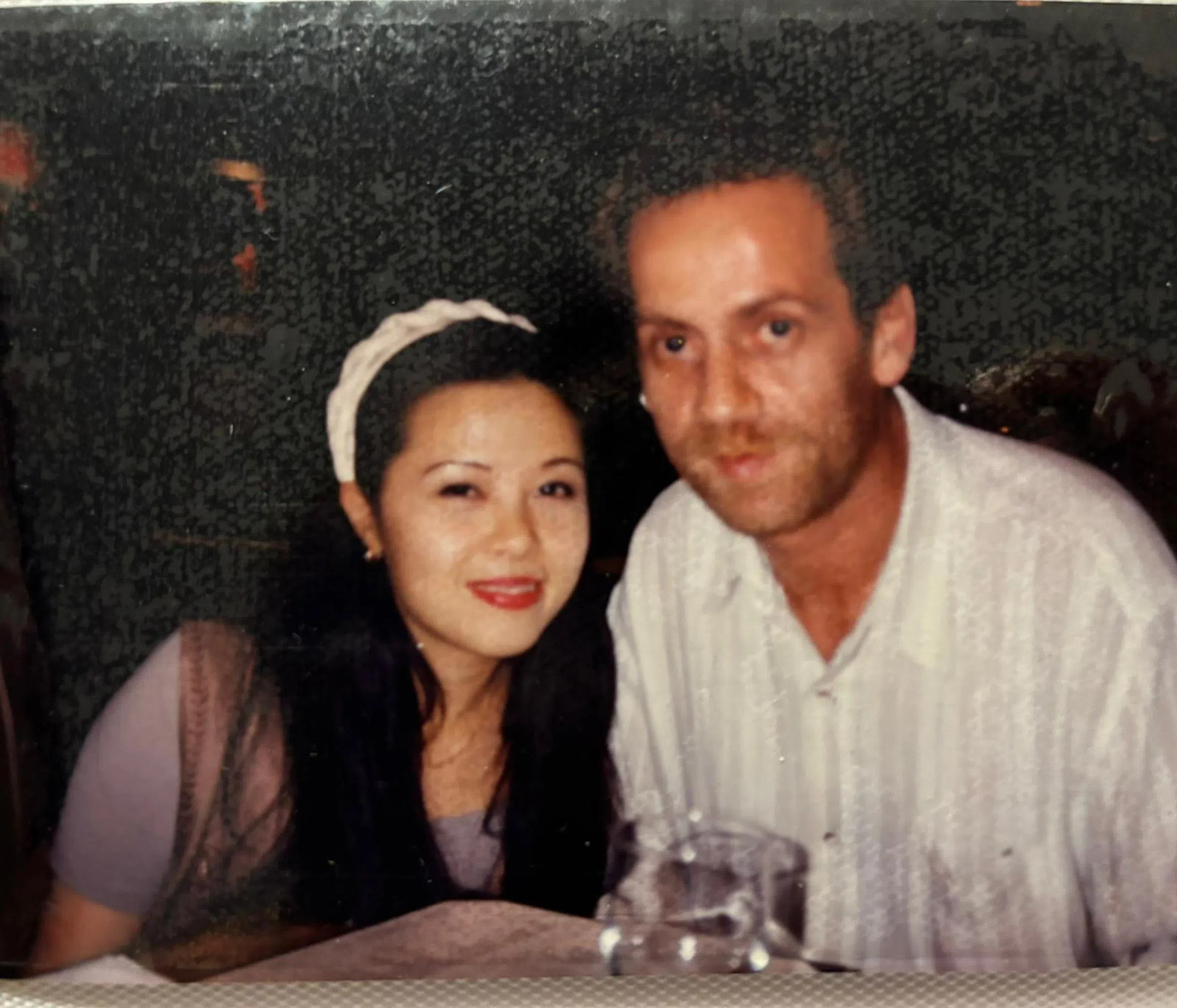
Ms Mae Lam with her husband Adib Ballout during the early days of their courtship in the 1990s.
PHOTO: ALIA BALLOUT
Another challenge facing Ms Lam is her lack of proficiency in Arabic, which makes it hard for her to communicate with the workers.
As a result, her husband runs most of the operations at the farm.
They also have to put up with unstable electricity supply, so like most families, they have a generator that kicks in when electricity gets cut.
Still, it is not surprising that Ms Lam feels so strongly about the land and the Lebanese community.
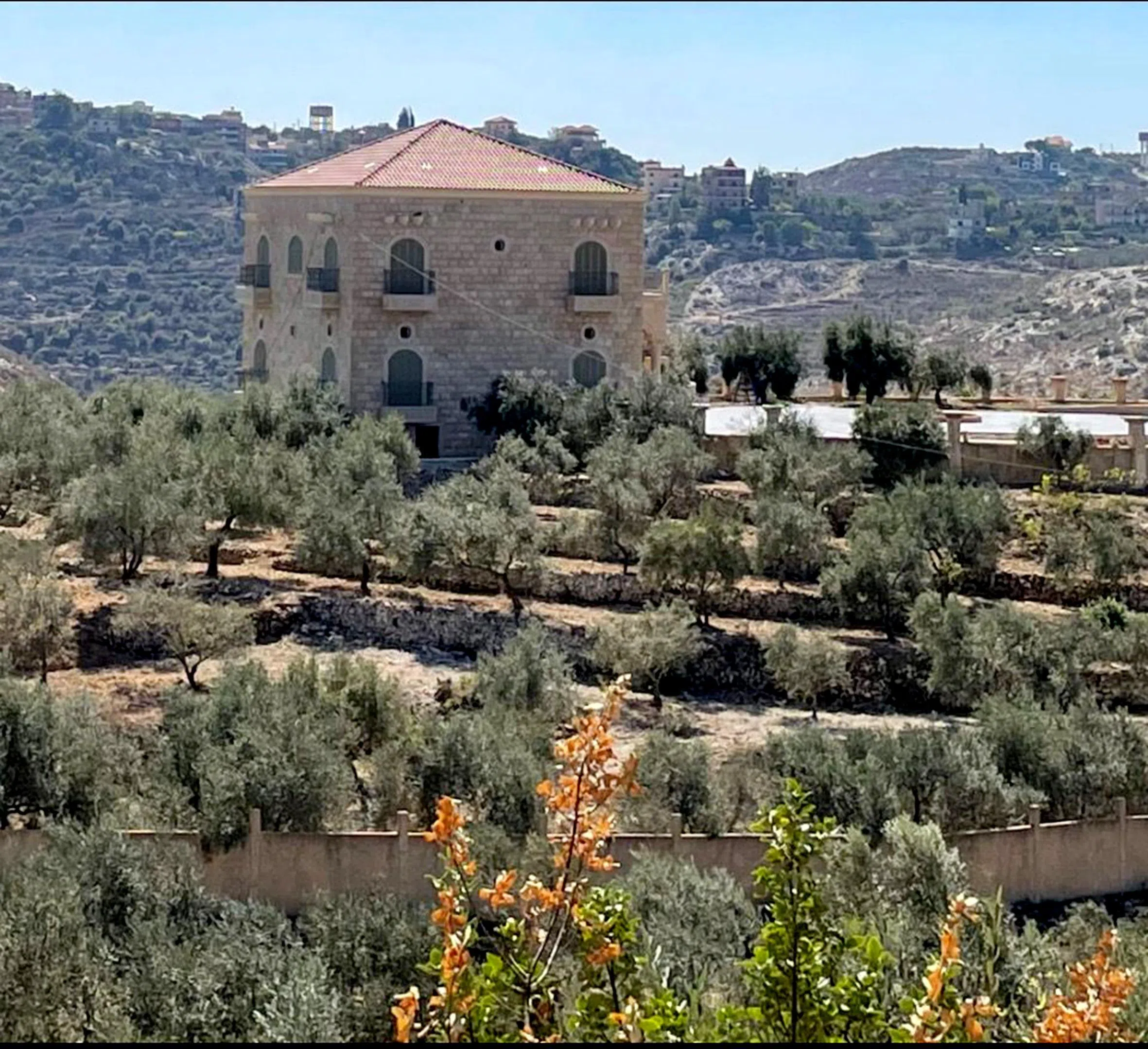
The Ballout home surrounded by their olive farm in southern Lebanon.
PHOTO: ALIA BALLOUT
The family’s name Ballout is Arabic for oak, and it reflects their ethos in being rooted to the land, family and community.
The couple – who met in Oman in 1993 and got married within a month – spend up to six months a year at the farm, together with their two children, daughter Alia, 27, and son Alawi, 25, who were both born in Singapore and are Singapore citizens.
The rest of the year is spent in Oman, with yearly visits to Singapore.
“I have always been very health conscious and want food which is grown organically. I also appreciate the fresh air and getting my hands into the land itself,” said Ms Lam, who believes she is the only Singaporean in southern Lebanon.
There is also something special about growing your own food, and she said: “Eating something you have grown yourself, it is something very spiritual and connects you to the land.”
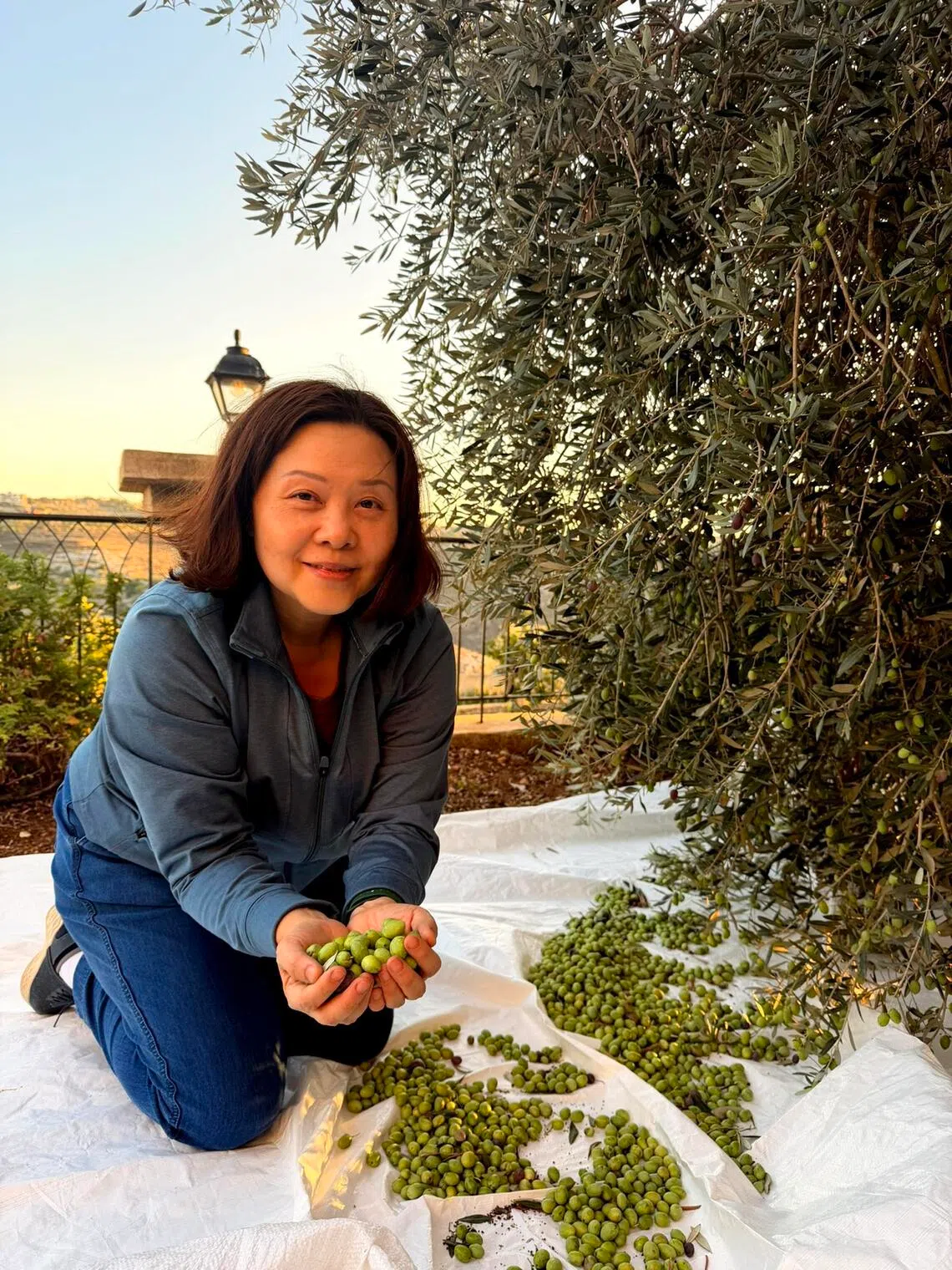
Ms Lam with the harvested olives.
PHOTO: ALIA BALLOUT
It is why they are strict about the way Beit Ballout is run.
For starters, they grow all their produce organically without the use of chemicals. The soil is fertilised by a flock of sheep that eats up all the fallen olives, leaves and branches.
The attention to detail goes down to the way the olives are harvested and processed.
Harvest takes place after the first rain, to ensure the fruits’ high antioxidant count, better nutritional quality, and enhanced flavour profile.
The olives are harvested by hand, instead of the commercial way of using tree-shakers, which according to Ms Alia, can bruise the olives and affect their quality.
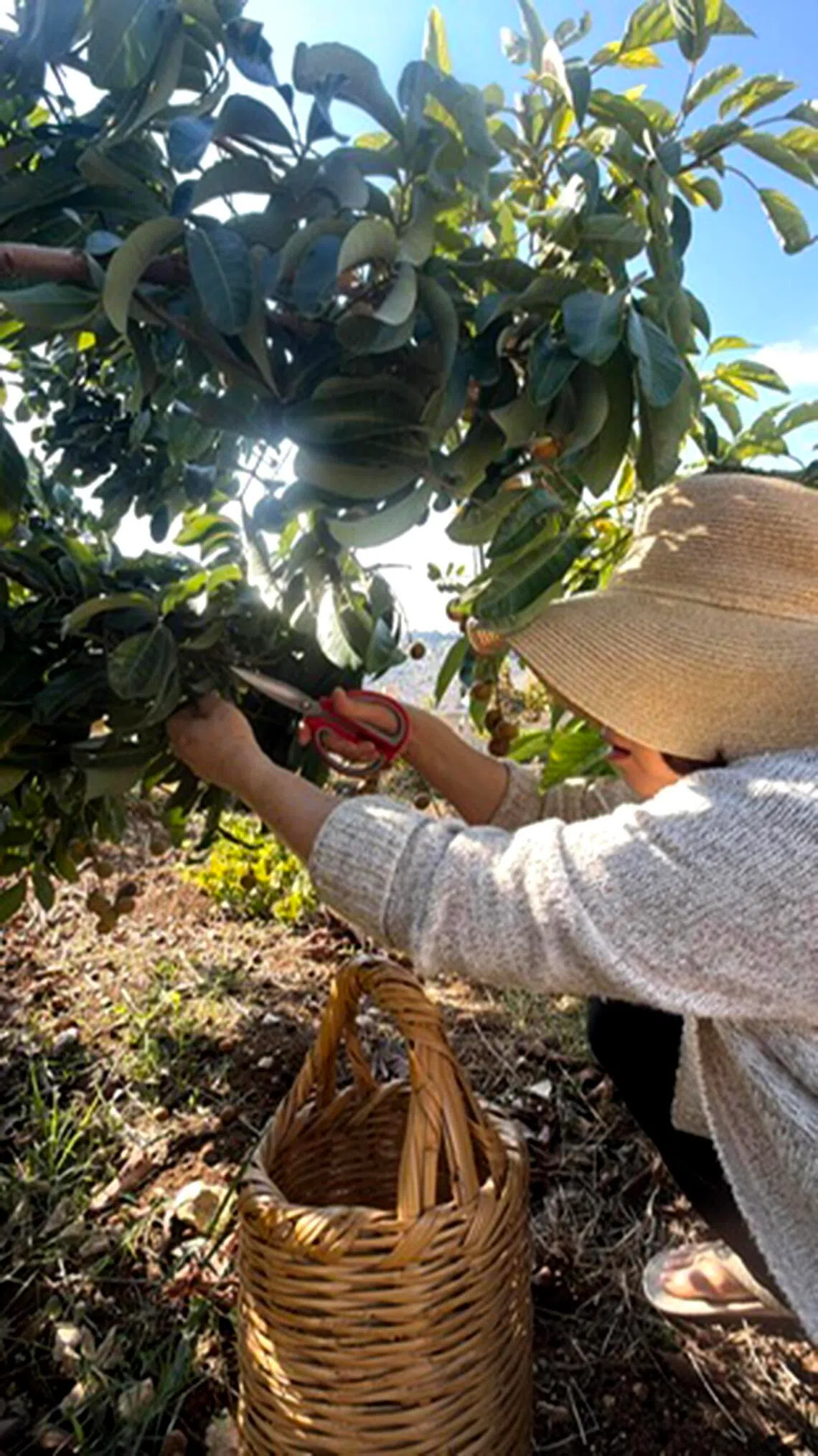
Ms Lam hand-picking olives during harvesting season in October.
PHOTO: ALIA BALLOUT
“My father doesn’t like the trees to be mistreated. He has removed workers found to have handled the fruits and trees in a rough way,” she said.
The olives are then cold-pressed using a granite wheel – a technique which has been used in the region for centuries – within four to six hours of them being picked to preserve as much flavour as possible.
Using traditional methods means it is all hands on deck during the harvesting season.
This includes the Ballouts and the rest of their “family” of 15 workers, who are Syrian and Palestinian refugees. They work from 7am to 3pm daily for three weeks to hand-pick the olives.
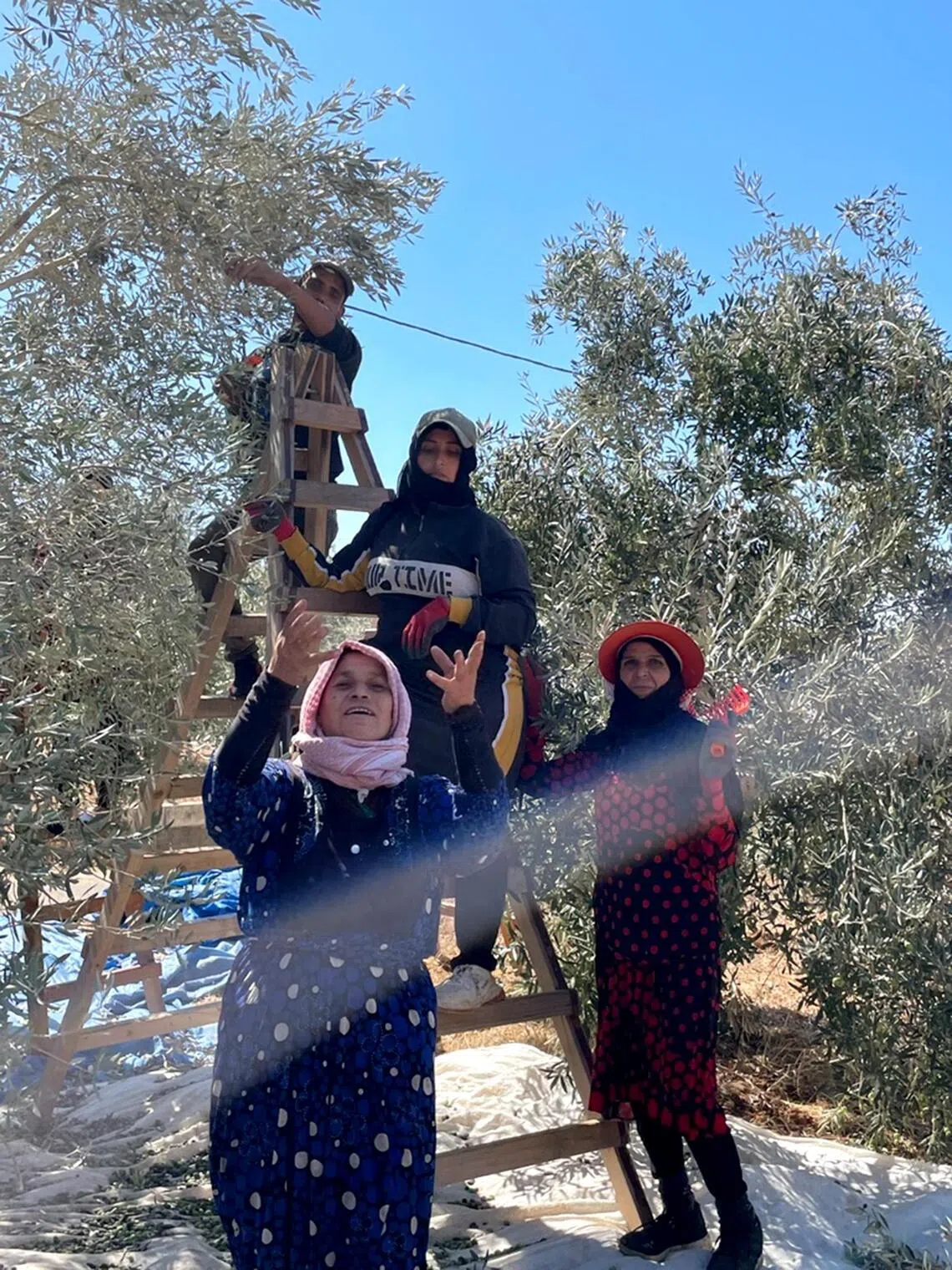
Syrian and Palestinian refugees helping to harvest the olives from Beit Ballout farm in southern Lebanon.
PHOTO: ALIA BALLOUT
Hand-picking the olives is both communal and traditional practice.
“It keeps ancient practices alive; the same way our grandparents did it,” said Ms Alia.
The result? A full-bodied green extra virgin olive oil that ensures all nutrients and polyphenols are kept intact.
When they first started running the farm, the olive oil was shipped to Oman, where the family is based and where Ms Lam has run a thriving spa business for the past 26 years.
There, they started giving bottles of the olive oil to family and friends, who could not get enough of the “liquid gold”.
That was when Ms Alia decided to set up a business in Singapore in February 2023 – while she was a full-time law student – to market the family’s extra virgin olive oil. The website went live on Nov 17.
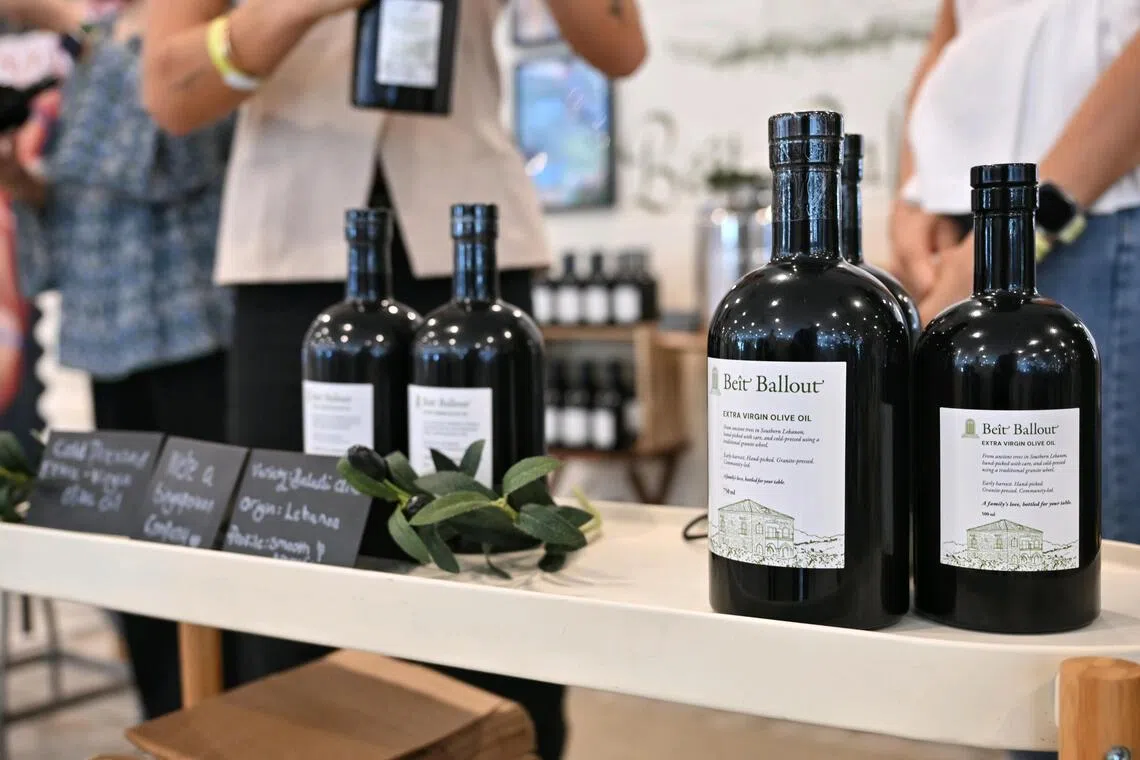
Beit Ballout’s extra virgin olive oil are cold-pressed using a granite wheel within four to six hours of them being picked to preserve as much flavour as possible.
ST PHOTO: ARIFFIN JAMAR
Her aim is not profit-driven but to connect with people and give them a good product.
“I am focusing on individual buyers, as opposed to selling our olive oil to restaurants and bigger companies where people do not know what they are eating,” said Ms Alia.
“I also want to change the perspective that people have of Lebanon, one that is not of war and chaos but instead filled with good produce and community.”

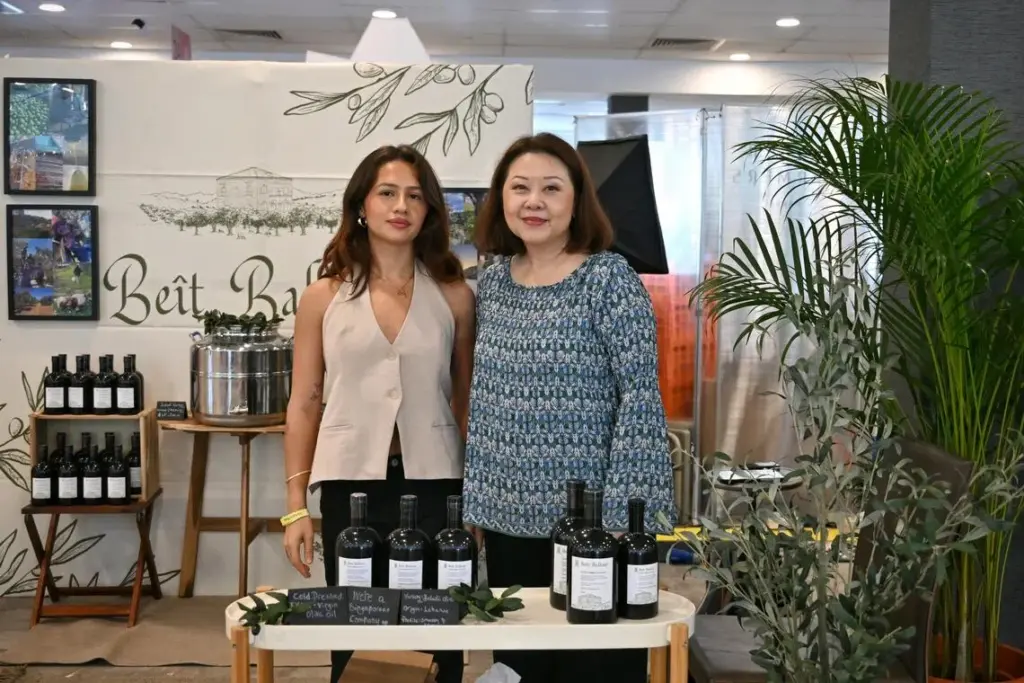
Dining and Cooking